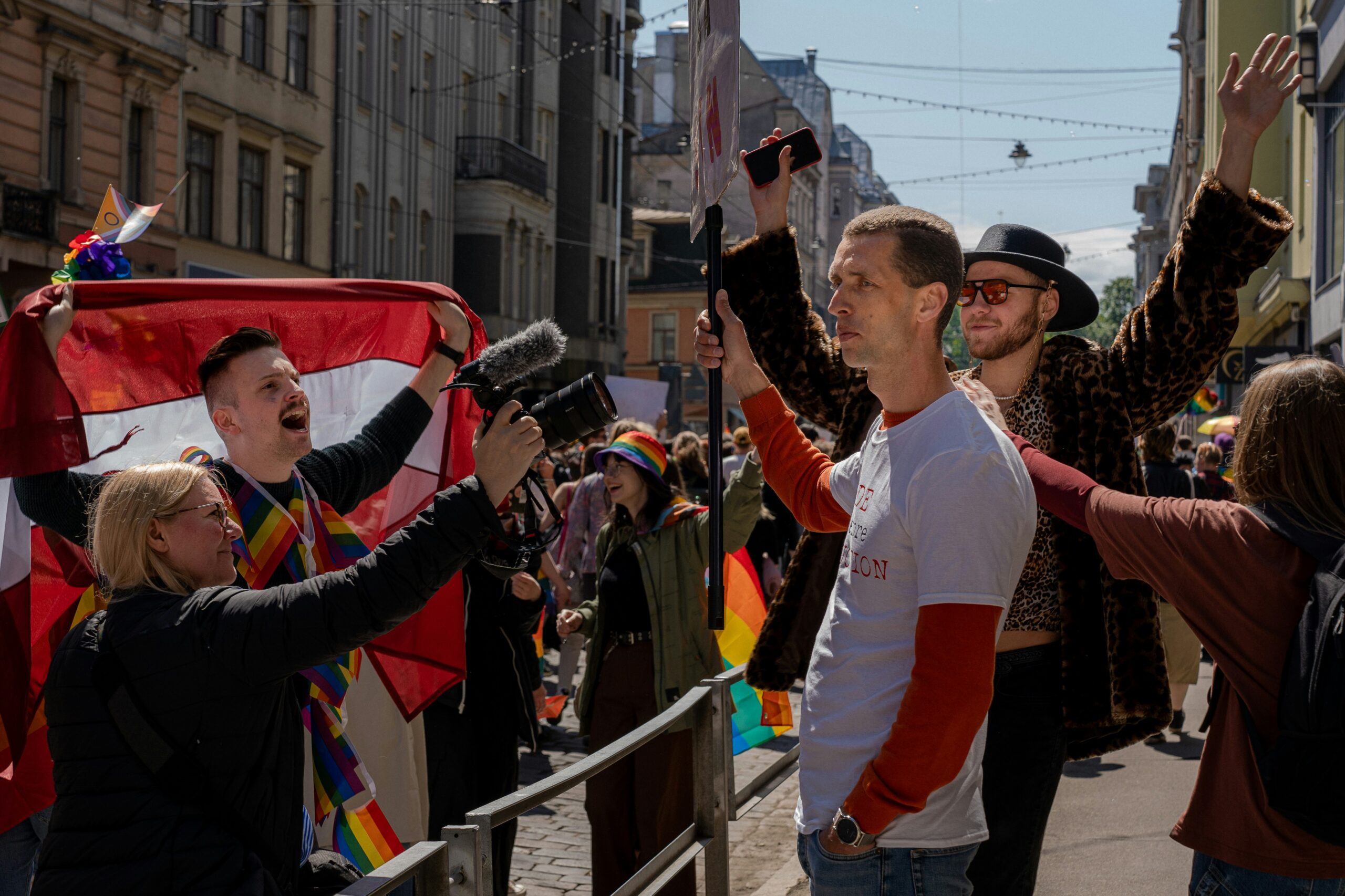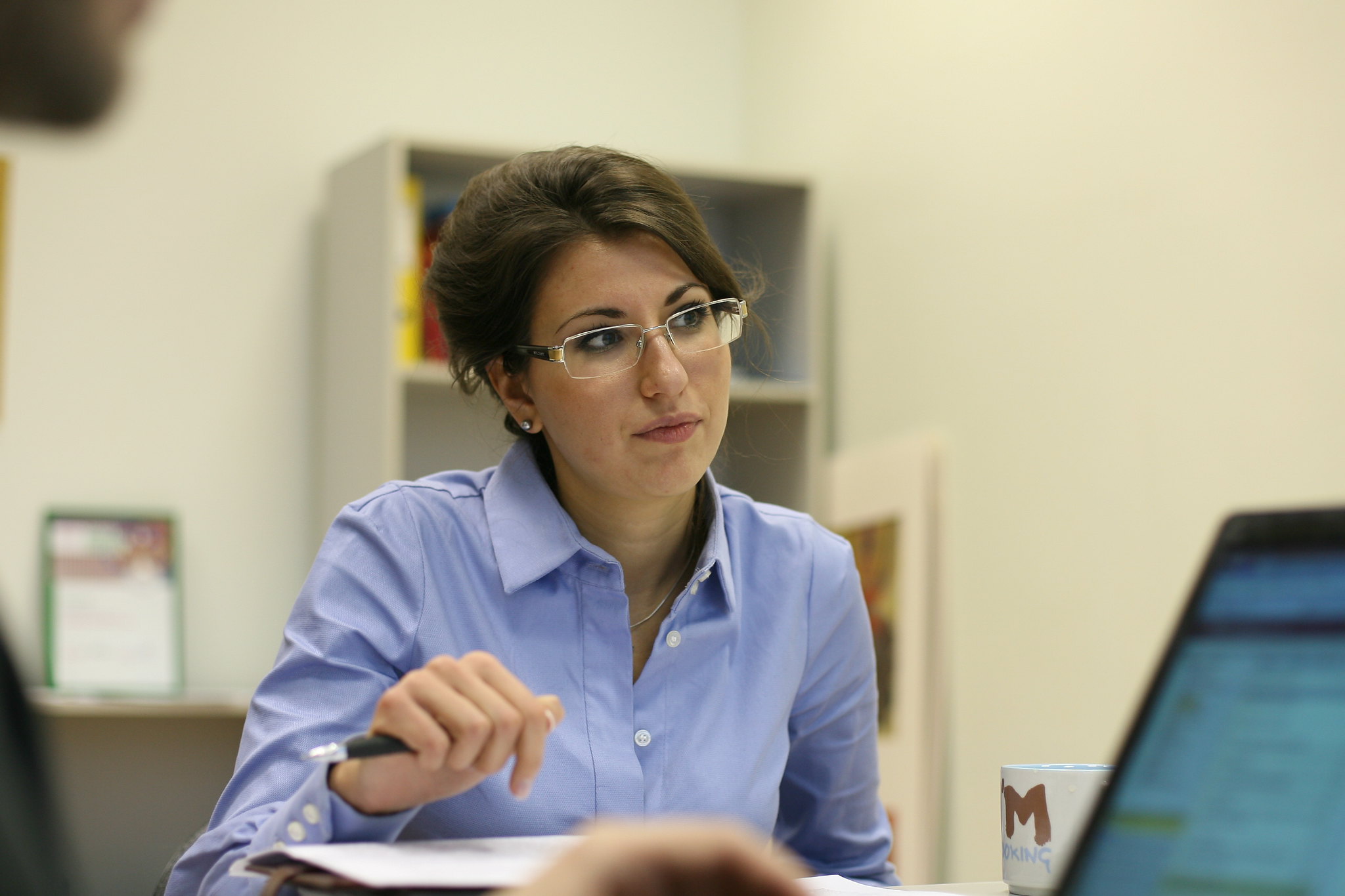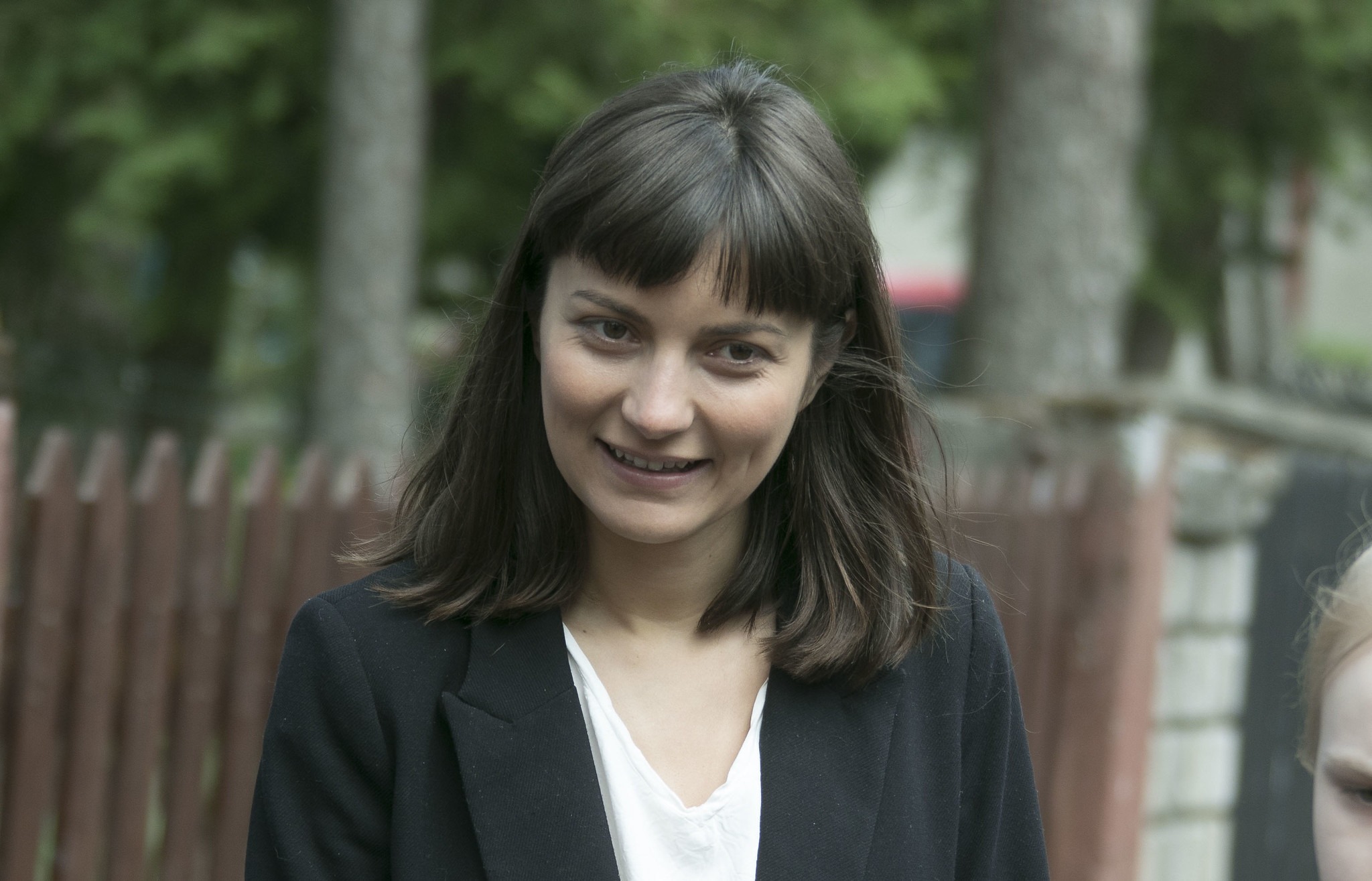
Key Insights:
Throughout the month of November, Lithuanian digital landscape was dominated by a few different topics, differing in their scale and scope. According to social media monitoring tool Awario, topics that attracted the most reader engagement in Lithuania were the following ones:
- The war between Israel and Hamas;
- The ongoing Russia’s aggression against Ukraine;
- Recently proposed real estate tax and spillover effects on the protest outside the Seimas against it;
- Efforts to remove Lithuanian citizenship from ballerina Ilzė Liepa for glorifying Putin;
- Alleged bomb threats in Vilnius airport;
- Further growth in the numbers of COVID-19 cases in the country;
- Scandal surrounding ESO (electricity and natural gas distributor in Lithuania), as residents were revealed to have overpaid for electricity;
- Lithuanian Foreign Minister Gabrielius Landsbergis not meeting Taiwanese counterpart Joseph Wu while he was visiting Lithuania.
Specifically Kremlin-aligned media channels in Lithuania continued to actively broadcast anti-government sentiments to their audiences. Absolute majority of the most engaged stories from this type of media covered domestic issues and widely commented on the work of the government or specific politicians, carrying a negative anti-government narrative. During this reporting fortnight, Kremlin-aligned actors emphasised citizens’ growing dissatisfaction with the current government, referring to the protest, that was initially organised to oppose the proposed property tax, held outside the Seimas. Also, outlets emphasised rising prices, and increasing crime rates in the country, arguing that it is becoming “dangerous to live” in Lithuania.
Hostile actors also continued to undermine Lithuania’s ongoing support for Ukraine mainly backing it up by two arguments: either that Ukraine is being prioritised over domestic matters and Lithuania “needs more attention from its own officials”, or by claiming that other countries in the world – primarily, the U.S. – have already withdrawn their support, as it is ineffective and insisting that Lithuania should follow the example.
Overview of findings:
- A total of 519 articles (compared to 649 articles throughout October) were scrutinized from four Kremlin-aligned media outlets, still functional in Lithuania.
- Considering Facebook platform, the most prominent and active again was one of a well-known participant of anti-LGBT protests, Antanas Kandrotas, publicly known under the nickname Celofanas (Cellophane). In his page “Celofanas LIVE”, he managed to maintain a similar pace, publishing even 48 posts throughout this month. Hardly any other account of a person comes near to such intensity of publishment in Lithuania. Absolute majority of the posts were live video streams of him talking to his audience; nearly all of the posts carried strong anti-government sentiments.
- In one post, that was quite well-engaged (see screenshot on the right), Celofanas announced a “new promotion”, called “remove all of the Ukraine’s flags”. In the 15 min streaming, Celofonas told the story how he approached Ukrainian flags at the embassy of Lithuania in the United Kingdom. He couldn’t hide his disgust and encouraged all of his followers to get rid of those, actively promoting “true citizenship”.
- Another notable Facebook profile this period was of Ignas Vėgėlė, lawyer, who is best known for his strong opposition to the government’s pandemic policies. Even though the pace of publishing may seem not as intense (15 posts per period), yet all of them attracted thousands of interactions from social media users. Moreover, at the very end of November, lawyer Ignas Vėgėlė, announced his candidacy for the role of President. He claimed that he was returning to politics because Lithuania needed “strong, courageous, but open leadership for the nation and for all people”. Echoing strongly anti-government sentiments, Vėgėlė might gather protest votes and even secure the leading position with his strongly populistic approach.
- An Awario media monitoring tool reveals the stable importance of Russia’s aggression against Ukraine, as mentions of Ukraine (and word’s forms) in Lithuanian media (see graph below) scores over 6K with a slight decrease of 3%, compared to the month of November.
- Data from the Awario monitoring tool also shows that over 15% of these pieces held a negative sentiment; a slight growth of 2% compared to the previous period. That signals the ongoing or even increasing usage of war for the spread of anti-Ukrainian and anti-government narratives.
Story of the month (1): Another possible Lithuanian citizenship removal
Renowned Russian ballet dancer Ilzė Liepa, who openly praises Russian President Vladimir Putin and his military conflict in Ukraine, is being scrutinized for the potential revocation of her Lithuanian citizenship. Recently, Russian ice figure skater Margarita Drobiazko forfeited her Lithuanian citizenship in September 2023, which was granted under exceptional circumstances, due to her public backing of the Kremlin regime.
Ilze Liepa, a Russian ballerina who was granted Lithuanian citizenship in 2000 to participate internationally with her Lithuanian ballet partner Petras Skirmantas, has recently come under fire for her support of the Russian invasion of Ukraine. In an interview with Russian media, she called the war a “special military operation” and expressed admiration for those participating in it. She also expressed her “shame” for Lithuanians and their “obvious restriction of Russian culture.” These statements have led to calls for her Lithuanian citizenship to be revoked. (see screenshot on the right, 15min.lt).
The public’s outrage over Liepa’s comments was evident in the social media discussions: a huge portion of social media users were openly disgusted by her comments and posted such statements as (see screenshot on the left): “I’ve just seen the embodiment of the absolute evil. This creature – Russian ballerina Ilze Liepa. She – citizen of Lithuania”. Commenters have also supported “as quick as possible” stripping Liepa of her citizenship and encouraged her “to stay in that glorified hell on earth” (Russia, where she currently lives). Commenters also grieved that “well, they gave citizenship to all kind of garbage..” (see screenshot on the right) or even draw paralles by claiming “zombies gonna be zombies”.
Conversely, as seen during the discussions on Drobiazko’s citizenship detailly analysed in the previous report, some posts backed up the argument of Russophobia and called Liepa a “victim”, “Drobiazko-2”, and the whole situation as “outraging the Russophobes”. Such sound headlines as “Reminder about hatred: why Lithuania is prosecuting Ilze Liepa” or “DROBIAZKO-2”: THE LITHUANIAN AUTHORITY INTENDS TO WITHDRAW THE CITIZENSHIP OF THE BALLERINA ILZE LIEPA” appeared (see screenshot on the right). Post claimed, that it “seems like the history of Margarita Drobiazko, who lost her Lithuanian citizenship by the decree of President G. Nausėda, is repeating itself: now the authorities and relevant media figures have also targeted another Russian artist – ballerina Ilza Liepa. <…> Unsurprisingly, this remark of the ballerina greatly outraged our Russophobes. Accordingly, a question is raised regarding the deprivation of Lithuanian citizenship of I. Liepa. In other words, we have, or probably soon will have a kind of Drobiazko-2.”
While Minister of Culture Simonas Kairys said that he does not justify the public statements of the Russian ballerina Ilzė Liepa, and therefore supported the initiated procedure of revocating Liepa’s citizenship. Kairys also assured that at the moment there are more and more opinions that in the field of culture it is not necessary to take such strict decisions as the cancellation of citizenship, but he categorically disagrees with such considerations and opposed the famous Kremlin-aligned narrative of not mixing politics and culture. The President Gitanas Nausėda will decide on revocating Liepa’s citizenship after receiving the conclusions of the Commission of Citizenship Affairs.
Story of the month (2): Final word in the MG Baltic case
During this reporting period, the Lithuanian Court of Appeals has issued a ruling in one of the most resonant political corruption cases in Lithuanian history. Eligijus Masiulis, former leader of the Liberals’ Movement (conservative-liberal political party in Lithuania) and former transport minister, and Raimondas Kurlianskis, former vice-president of MG Group (also known as MG Baltic, investment company operating in Lithuania and foreign markets), were convicted of bribery and influence peddling to real prison sentences in scandalous MG Baltic political corruption case. Masiulis was sentenced to 6,5 years of imprisonment, while Kurlianskis – six years imprisonment and a fine of 25,000 euros. Moreover, politician Vytautas Gapšys of the Labour Party, was also found guilty and sentenced to 4.5 years of imprisonment; the whole MG Group, the Liberal Movement and the Labour Party were given fines of 1 million, 500,000, and 400,000 euros respectively; former liberal politicians Šarūnas Gustainis and Gintaras Steponavičius – one-time minister of education – were fined 25,000 and 20,000 euros respectively.
Seemingly the most engaged post on social media (see screenshot on the right) related to this case was published by well-known journalist Andrius Tapinas. He wrote in his a post: ”And the whole approach to the courts in Lithuania is turning upside down again. 6 years in prison for MG Baltic strategist Kurlianskis, 5.5 years in prison for Eligius Masiulis, 4.5 years in prison for Gapšys. Almost the maximum possible penalties. It wasn’t a loan in a brandy box after all.
The liberal movement is also guilty and will receive a fine of half a million. Remembering Viktorija Čmilytė-Nielsen’s reaction after the first decision [when the defendants were acquitted], I wonder if she will continue to welcome this decision as well.But in reality – the first court throws all the accusations out of the window, the second instance court collects and confirms everything. There are certainly many questions about the logic of the decisions of our legal system.” It gathered over 7K interaction from social media users. Commenters mainly questioned and criticized the courts in the country, as only last year, Vilnius Regional Court acquitted defendants in this corruption case.
Social media users, besides criticising the opposing decisions of Lithuania’s legal system, also openly mocked the defendants by creating memes (see screenshot on the lower left), writing comments, making jokes (- “What party Masiulis could never join?; – The Freedom party”) or even writing poems (see screenshot on the right.) Social media users creatively looked at the situation and filled the internet with a lot of entertaining content.
Meanwhile, a more negative effect of this case appeared to be on a political scale: as the most recent polls show, ratings of the Liberal Movement and its leader Viktorija Čmilytė-Nielsen visibly dropped after all the defendants were convicted. Therefore, it may have an effect in the upcoming elections next year.
Even though this case started back in 2016, being the largest one in Lithuanian history, it still managed to attract mass attention. Besides intriguing citizens, MG Baltic case also strongly affects their approach to the courts and judicial system in general, as well as political ratings. Notably, the current Court of Appeals’ ruling can still be appealed with the Supreme Court of Lithuania within three months.









